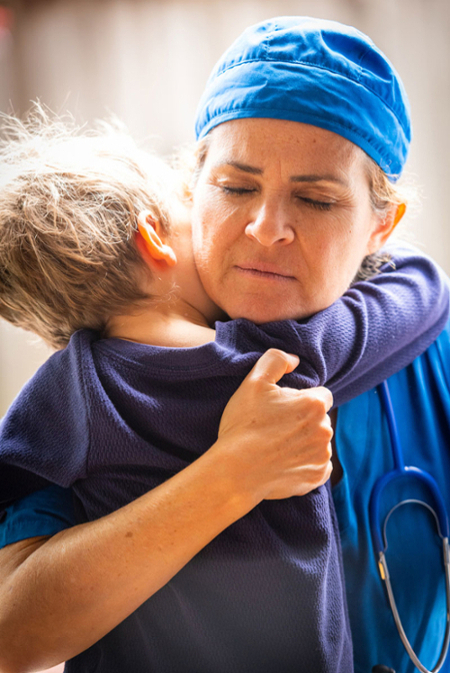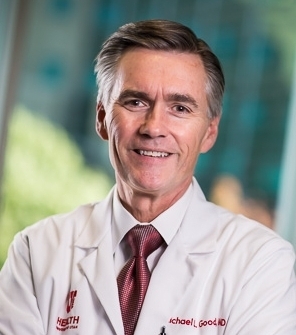Voices of U of U Health
Responding to Childcare Needs During COVID-19
In one way or another, COVID-19 has impacted all of us. University of Utah Health employees with children are experiencing unique disruptions. With uncertainty around hybrid and/or distance learning for K-12 and hesitation to reenter child care centers, employees are concerned about maintaining quality work performance while also managing parental and educational responsibilities.

Our faculty, staff, and trainees are telling us childcare is their greatest source of stress and frustration. While we can only solve some of our existing problems, we want to gain a better understanding of what people are experiencing in order to develop solutions that can help the most.
The Struggle is Real
The struggle for working parents is very real, particularly in families with two working professionals. I hear this from other leaders and colleagues, and I hear this from my own adult children. I see how difficult this time has been for my daughter and her preschooler, and for my son and daughter-in-law as their family and elementary school children adapt to recent COVID-related changes in their school districts.
Research shows that when there is disruption in dual-working households, often the mother’s career is impacted most or even put on hold. Academic medicine is already seeing reports of decreased academic productivity among female faculty around the world compared to their male counterparts.
Collectively, we must continue providing excellent patient care, teaching our students, and conducting our research while also caring for our families. But we may need to reset our expectations. There are only so many hours in the day, and people have to make trade-offs. While we want everyone to be productive in their jobs, we also want them to feel that they and their families are safe.
Made for this Moment
While we know it is going to take some time to return to “normalcy,” we are determined to support our faculty, students, and staff as we find the best ways to navigate this pandemic. As an integrated academic medical center, we are equipped to figure this out. We discover. We innovate. We create new ways of delivering health care. We make the world a better place.

With the same fervor we apply to patient care, access to testing, multidisciplinary research, and modified learning, we will find ways to ease the childcare needs of our employees. This is an opportunity for teams and leaders to be imaginative in how they come together to support one another. Think about how you can be flexible in terms of managing responsibilities and creating a culture of wellness. We should view this as something that is integral to our work.
An Urgent Priority
Supporting the childcare needs of our employees is an urgent priority and critically important to the core missions of our institution. We want to take preventive measures to avoid burnout. Under the leadership of Angela Fagerlin, PhD, Amy Locke, MD, FAAFP, and Chris Hill, DPhil, we have organized a Childcare Workgroup to tackle these concerns. With the goal of meeting families where they are, the group is focused on finding ways the health system can support part-time or flexible work, help connect employees to available resources, and fill gaps when possible.
To develop solutions that will have the most impact, the Childcare Workgroup sent out a survey to all U of U Health faculty, staff, and trainees. We encourage everyone—with and without children or adult dependents—to complete this anonymous survey. The feedback will help us know how to best direct time and resources.
Facing Uncertainty with Flexibility, Empathy, and Kindness
When school districts across Utah take varied return-to-school approaches, it creates a unique set of challenges for our large workforce. For example, some of our employees had a choice between in-person learning, online learning, or a hybrid. However, the Salt Lake School District decided on virtual learning for the first quarter, leaving parents grappling with how to manage education from home while fulfilling their responsibilities at work.
This is a time to exercise flexibility, empathy, and kindness. It’s important for leaders and managers to understand that the information parents are receiving from their schools is constantly changing.
We realize families will continue to have ongoing challenges related to childcare, and it remains an urgent priority for us to address these needs.
